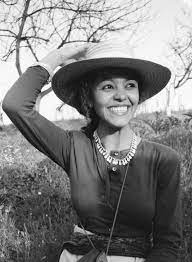Beyond Itself
There’s something particularly relaxing about sitting on a headland and watching sets roll in to the bay: those long, glistening pipes rising slowly beneath a glazed blanket; they break, roll into froth and unravel into webbed triangles as they search for the shore—
not a rhythmic pulse
a stilted flow rippled with irregular gradations
it borders on a rhythm, meaning: something’s almost always happening, but it’s rarely a pattern; at most, a short series will collapse in a steady succession
that it’s so relaxing to watch suggests that the waves cohere somehow with my own, bodily rhythms—as if the body, seeing such movement, recognises it
not a pulse
there’s no pausing or sudden accelerations
no tough organ clutching and pumping
so it could be that my body is drawn to a rhythm beyond itself; its attraction to these waves is based on what it hopes for, or what it feels sure will happen—perhaps each wave is the path of a life; in other words, the body, like a wave, is a kind of burning filament, or a thawing berg
perhaps what we know as ‘sensation’ is as much the response to stimuli as it is the preparation for what is to come; the body looks for the rhythm into which it can rest
as it rises from the depths, collecting itself
sun shot through a barrel—coughed out in a mess
of foam and crystal,
where—(I squint).
I Love Mine
What the, what field, a coppice
of green shade and order clumped
into the grey-blue of my eye,
the brown and the dim skied into otherwise,
whatever’s seen, I cannot share it.
In my mind I’m a brown mountain,
a burnt-out country where love burns plains
into ragged horizon, that line
swept over the ranges, before which
all terror and all of its jewels are mine.
Here’s the death: ring-barked white
as the moon, tragic in my sapphire mist,
my tangled hush, my poem’s hot gold coil.
I raze forests for the decks around houses,
where I pot the world’s orchids,
I press death down, down into the south,
into simmering dark soil.
This cored heart, cored country,
my pitiless blue eyes, sick of art,
what we see, we can bless: we watch
our cattle die,
tear off their skins for drums
and soak ourselves in bloody beats;
our dead army, our memory,
our clouds of electric desire.
At the core of my heart is a cored country,
lands of rainbow rhyme
and reptile rhyme, golden fire; I
stripped it back threefold, from spirit
to serpent, serpent to parched
paddock, because I gaze, I gaze,
my oily green veil thickens as I gaze.
An opal hearse awaits my lavish will
in a country that never loved me,
that I will not understand. My thoughts
are hawks in search of earth’s splendours,
with crystalline vision blind to its basis:
brown land, black country,
the deaths I won’t see,
whose songs I’ll hear upon my own.
Sutherland
Most of the terrain was scooped out,
leaving behind green lumps of muscle
and outcrops of rose-grey marrow.
Anything substantially vertical or colourful
was stripped away; the remnants
survive in a wren, who weaves
the ground into blueness.
(Who’s he calling,
across this stretched, slumbering planet?)
Even in full sun the soil’s still damp;
everything speaks of waking from rain.
It’s a landscape weighed down with water;
it’s waiting to dry out, to unleash itself,
but greedy lochs smother nadirs
and insist, from the feet of their valleys,
on their fallen, smeared-iron skies.
A person on a ridge could be seen for miles;
the one who sees owns nothing
but the direction of departure.

Stuart Cooke is a poet, critic and translator. His recent works are the poetry collection, Opera (2016), and a translation of an Aboriginal songpoem, George Dyuŋgayan’s Bulu Line: a West Kimberley song cycle (2014). His translation of Gianni Siccardi’s The Blackbird is forthcoming. He lives on the Gold Coast, Australia, where he lectures at Griffith University.
Featured image: painting by Giacomo Cuttone http://www.cuttone.altervista.org/gall/completa.html





















































